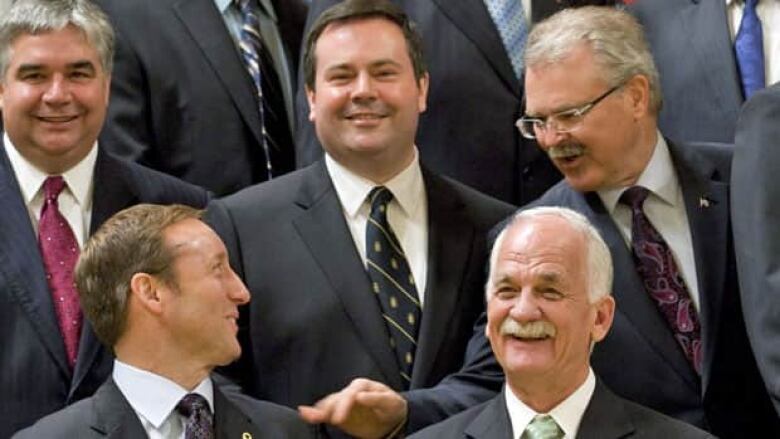11 moves the Conservatives made this fall

While the Conservative government has used its newfound majority to push through time allocation motions, whichlimit the number of hours set aside for debate, more than any previous government, only three bills are expected to pass both the House of Commons and the Senate before the end of the fall sitting of the 41st Parliament.
The following bills made it through the House between Sept. 19 and Dec. 15. Most were introduced in a previous Parliament but didn't make it through the entire legislative process.
- C-10 The omnibus crime bill, combining all the justice measures the Conservatives tried to pass when they had a minority government, is at second reading debate in the Senate and expected to pass in 2012.
- C-13 A bill to implement the spring budget had third reading in the Senate on Dec. 13 and is awaiting royal assent to become law. Among other things, the budget increased support payments to the poorest seniors, extended children's tax credits to arts programs, phased out the per-vote subsidy to political parties and made the $2-billion Gas Tax fund for cities permanent.
- C-16 The security of tenure of military judges act, making changes to how long military judges can serve, received royal assent on Nov. 29.
- C-18 An act to reorganize the Canadian Wheat Board, which will eliminate the wheat boards monopoly on selling Prairie wheat and barley,was passed by the Senate and received royal assent Thursday.
- C-20 The fair representation act, which will add 30 seats to the provinces with the biggest populations, went to third reading stage in the Senate on Dec. 15 and is expected to become law before the Senate rises.
- C-22 TheEeyou Marine Region Land Claims Agreement Act, a settlement involving Inuit and Cree peoples in northern Quebec, had royal assent on Nov. 29.
- C-29 One of a series of budget bills needed during the year passed third reading in the Senate on Dec. 12 and is awaiting royal assent.
Of the bills on which the government moved time allocation, C-13, C-18 and C-20 are due to become law before Parliament rises from the fall session.
The government also used time allocation on C-10 and C-19, the bill to end the long-gun registry, but the gun registry bill isn't expected to move to the Senate until 2012.
There were a number of other measures the government introduced which didn't need parliamentary approval.
Here are four things the government can do and did this fall without going through Parliament.
- Banned veils during citizenship oaths: Citizenship and Immigration Minister Jason Kenney announced Dec. 12 that, since taking the oath of citizenship is required in order to become Canadian, it was vital that everyone be seen to be taking it. He banned face coverings like niqabs and burkas, issuing a directive to his officials to enforce the rule.
- Strengthenedsanctions on Iranand Syria: Sending troops into a country is an executive decision, left up to the prime minister and cabinet. But while the foreign affairs minister went to the House of Commons for a motion in support of sending troops to Libya, the sanctions the government expanded against Iran and Syria didn't need parliamentary approval.
- Got out of the Kyoto Protocol agreement: Environment Minister Peter Kent returned to Ottawa Dec. 12 from climate talks in Durban, South Africa, and announcedCanada was quitting the Kyoto pact. There was legislation to implement the protocol, including a law requiring environment commissioner Scott Vaughan to report on progress toward Canadas Kyoto targets, but the government says its perfectly legal for Canada to bow out of the international treaty.
- Border action plan: While some elements of the Beyond the Border agreement with the U.S. will need money approved in the budget (like infrastructure and technology spending for border crossings and law enforcement), Prime Minister Stephen Harper and U.S. President Barack Obama have finalized a set of targets they say will help the economy and improve security at the same time.












_(720p).jpg)


 OFFICIAL HD MUSIC VIDEO.jpg)
.jpg)



























































































